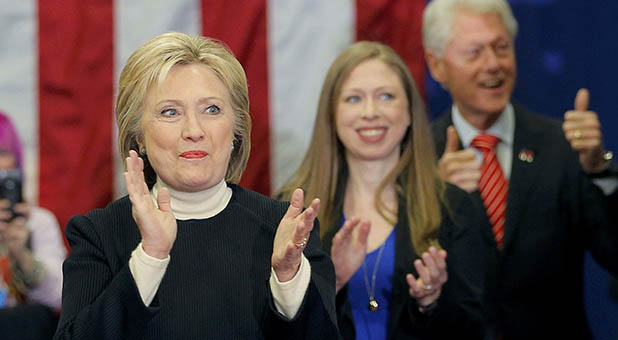Here’s How Hillary Clinton Pulled Off a Tie in New Hampshire
Supporters of U.S. Sen. Bernie Sanders (D-Vt.) likely went to bed late last night after celebrating the shellacking his campaign gave Hillary Clinton in New Hampshire, only to wake up this morning and discover … it ended in a tie.
Yes, Sanders won an overwhelming majority of the popular vote—60 percent as of this writing, with 96 percent of precincts reporting—and with it took 15 of the 24 pledged delegates awarded to New Hampshire at the Democratic National Convention. That means Hillary Clinton got the other 9.
But, unlike the Republican nominating process, Democrats have two classes of delegates, one of which is not bound by any primary or caucus vote. In addition to the pledged delegates, they also have superdelegates, who can vote for whomever they want at the convention.
New Hampshire has eight superdelegates, of which six have declared they are voting for Clinton. The other two have insisted they are uncommitted as of this writing, meaning both candidates are walking away from the Granite State with 15 delegates each.
A tie.
In Iowa, Clinton won 23 of the 44 pledged delegates—Sanders won 21—making the superdelegates the deciding factor there, as well. And, just like in New Hampshire, Clinton has received commitments from six of those superdelegates.
Commitments from superdelegates are non-binding, and tend to be fluid. In fact, it was Clinton’s inability to hang onto those commitments in 2008 that gave the Democrat nomination—and ultimately, the presidency—to Barack Obama.
So, the current delegate count, going into the Feb. 27 South Carolina Democrat Primary, is 44 to 36 in favor of Clinton with four uncommitted superdelegates.















































